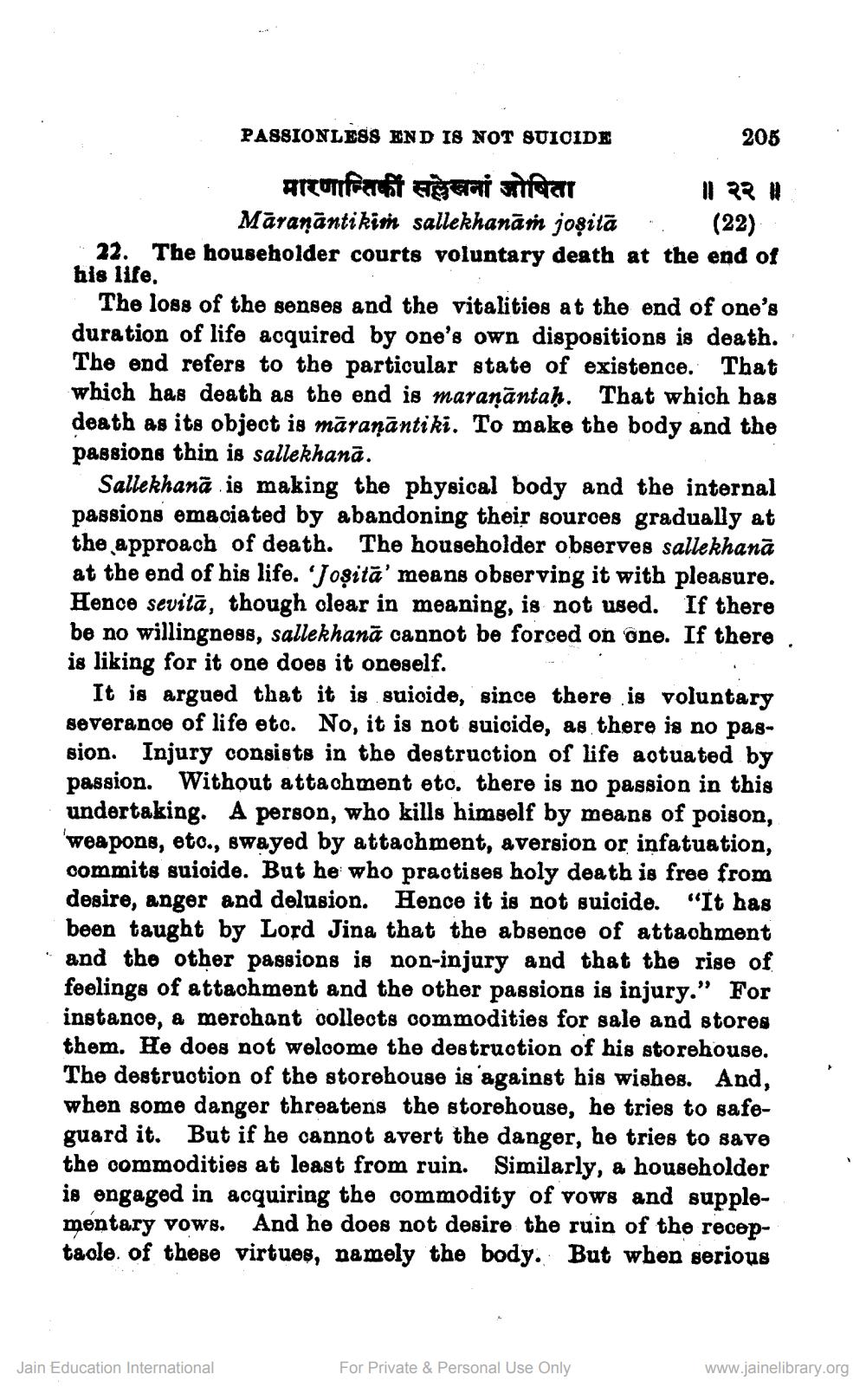________________
PASSIONLESS END IS NOT SUICIDE
arconffacht aĝeni andar
॥ २२ ॥
Māraṇāntikiṁ sallekhanāṁ joṣitā
(22)
22. The householder courts voluntary death at the end of his life.
The loss of the senses and the vitalities at the end of one's duration of life acquired by one's own dispositions is death. The end refers to the particular state of existence. That which has death as the end is maranantaḥ. That which has death as its object is māraṇāntiki. To make the body and the passions thin is sallekhanā.
205
Sallekhana is making the physical body and the internal passions emaciated by abandoning their sources gradually at the approach of death. The householder observes sallekhanā at the end of his life. 'Josita' means observing it with pleasure. Hence sevita, though clear in meaning, is not used. If there be no willingness, sallekhanā cannot be forced on one. If there is liking for it one does it oneself.
It is argued that it is suicide, since there is voluntary severance of life etc. No, it is not suicide, as there is no passion. Injury consists in the destruction of life actuated by passion. Without attachment etc. there is no passion in this undertaking. A person, who kills himself by means of poison, weapons, etc., swayed by attachment, aversion or infatuation, commits suicide. But he who practises holy death is free from desire, anger and delusion. Hence it is not suicide. "It has been taught by Lord Jina that the absence of attachment and the other passions is non-injury and that the rise of feelings of attachment and the other passions is injury." For instance, a merchant collects commodities for sale and stores them. He does not welcome the destruction of his storehouse. The destruction of the storehouse is against his wishes. And, when some danger threatens the storehouse, he tries to safeguard it. But if he cannot avert the danger, he tries to save the commodities at least from ruin. Similarly, a householder is engaged in acquiring the commodity of vows and supplementary vows. And he does not desire the ruin of the receptacle of these virtues, namely the body. But when serious
Jain Education International
For Private & Personal Use Only
www.jainelibrary.org




